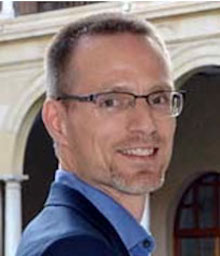
Frank A.J.L. Scheer, Ph.D.
Professor of Medicine, Brigham and Women's Hospital
Professor of Medicine, HMS, Faculty of Arts & Sciences
Harvard Title
Professor of Medicine
Administrative and Hospital Titles
Neuroscientist, Division of Sleep and Circadian Disorders, Departments of Medicine and Neurology, Brigham and Women's Hospital
Director, Medical Chronobiology Program, Brigham and Women's Hospital
Senior Investigator, Division of Sleep and Circadian Disorders, Departments of Medicine and Neurology, Brigham and Women's Hospital
Address
Medical Chronobiology Program, Division of Sleep and Circadian Disorders, BWH
221 Longwood Avenue (BLI-044)
Boston, MA 02115
Publications View
Light affects morning salivary cortisol in humans.
Light and diurnal cycle affect human heart rate: possible role for the circadian pacemaker.
Sleep
Authors: Acute effects of bright light exposure on nighttime cortisol levels in humans
2005; 28:A59.
2005; 28:A59.
Sleep
Authors: Challenges to sleep in asthma studied under baseline conditions, reduced homeostatic sleep drive, and adverse circadian phase for sleep
2006.
2006.
Sleep
Authors: An endogenous circadian rhythm in bronchodilator rescue medication use in asthma
2004; 27:A81.
2004; 27:A81.
J Sleep Res
Authors: Circadian Rhythm in Degree of Sleep Inertia Following Awakening
2006; 15(1):55.
2006; 15(1):55.
Sleep
Authors: Chronic, but not acute, nighttime melatonin administration improves sleep quality in hypertensive patients
2004; 27:A329.
2004; 27:A329.
Sleep
Authors: Circadian Effect on Degree of Sleep Inertia Present After Awakening
2006; 29:A67.
2006; 29:A67.
Sleep
Authors: Human circadian period is influenced by entrainment to non-24 hour schedules
2005; 28:A72.
2005; 28:A72.
Sleep
Authors: Desynchrony between sleep-wake cycle and circadian cycle leads to suppressed plasma leptin; potential relevance for shift workers
2007; 30:A61.
2007; 30:A61.